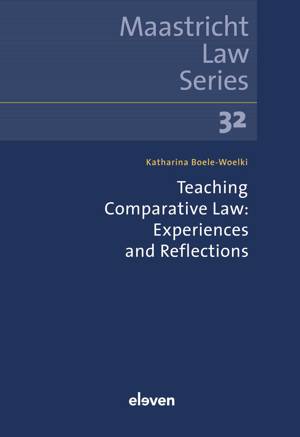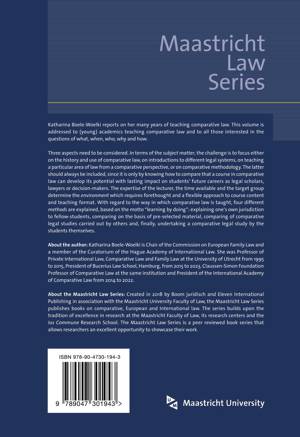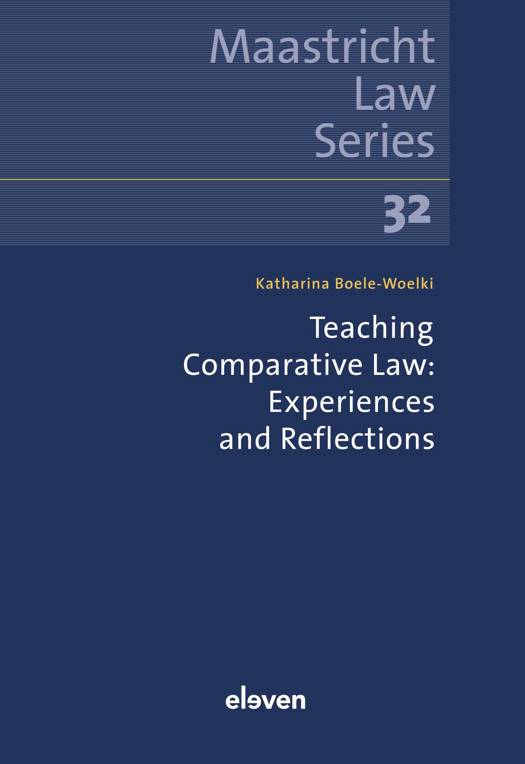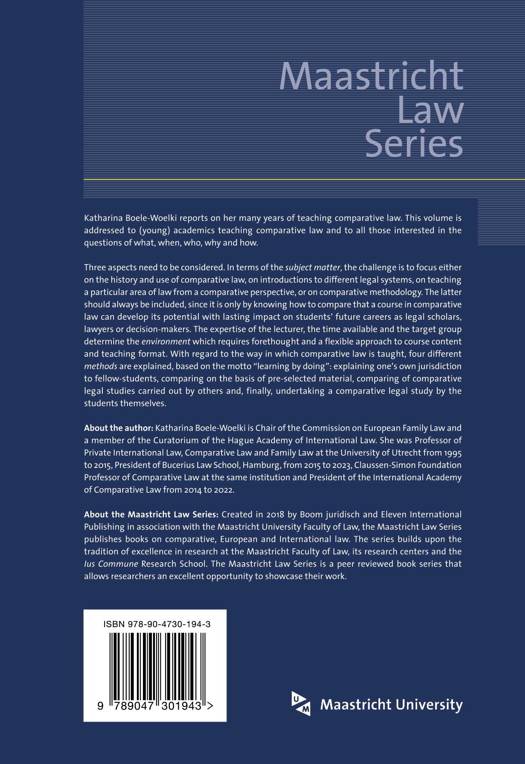
Door een staking bij bpost kan je online bestelling op dit moment iets langer onderweg zijn dan voorzien. Dringend iets nodig? Onze winkels ontvangen jou met open armen!
- Afhalen na 1 uur in een winkel met voorraad
- Gratis thuislevering in België vanaf € 30
- Ruim aanbod met 7 miljoen producten
Door een staking bij bpost kan je online bestelling op dit moment iets langer onderweg zijn dan voorzien. Dringend iets nodig? Onze winkels ontvangen jou met open armen!
- Afhalen na 1 uur in een winkel met voorraad
- Gratis thuislevering in België vanaf € 30
- Ruim aanbod met 7 miljoen producten
Zoeken


Omschrijving
Author Katharina Boele-Woelki reports on her many years of teaching comparative law. This volume is addressed to (young) academics teaching comparative law and to all those interested in the questions of what, when, who, why and how. Three aspects need to be considered. In terms of the subject matter, the challenge is to focus either on the history and use of comparative law, on introductions to different legal systems, on teaching a particular area of law from a comparative perspective, or on comparative methodology. The latter should always be included, since it is only by knowing how to compare that a course in comparative law can develop its potential with lasting impact on students' future careers as legal scholars, lawyers or decision-makers. The expertise of the lecturer, the time available and the target group determine the environment which requires forethought and a flexible approach to course content and teaching format. With regard to the way in which comparative law is taught, four different methods are explained, based on the motto "learning by doing" explaining one's own jurisdiction to fellow-students, comparing on the basis of pre-selected material, comparing of comparative legal studies carried out by others and, finally, undertaking a comparative legal study by the students themselves.
Specificaties
Betrokkenen
- Auteur(s):
- Uitgeverij:
Inhoud
- Aantal bladzijden:
- 26
- Taal:
- Engels
- Reeks:
Eigenschappen
- Productcode (EAN):
- 9789047301943
- Verschijningsdatum:
- 28/03/2024
- Uitvoering:
- Paperback
- Formaat:
- Trade paperback (VS)
- Afmetingen:
- 170 mm x 244 mm
- Gewicht:
- 72 g

Alleen bij Standaard Boekhandel
+ 61 punten op je klantenkaart van Standaard Boekhandel
Beoordelingen
We publiceren alleen reviews die voldoen aan de voorwaarden voor reviews. Bekijk onze voorwaarden voor reviews.












